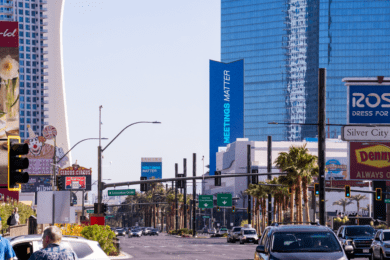The United States is still a great place to have a meeting. That’s the message ASAE President and CEO John Graham is working hard to broadcast to the world. In the wake of reports that the U.S. has been losing market share in the international tourism space—down 4 percent from January to July 2017—his organization teamed up with Visit U.S. Coalition. The downturn is costing the economy tens of thousands of jobs and billions of dollars in revenue.
“We want to make sure we are sending a welcoming message,” Graham says.
The Coalition is promoting policies that support President Donald Trump’s announcement that “America is open for business.” Those policies include streamlining travel and screening processes and embracing travel as a national priority.
“The president knows our business, because it’s his business; he understands how important travelers and their spending are to the American economy,” said Chip Rogers, president and CEO of the Asian American Hotel Owners Association. “When a traveler from abroad visits one of our great destinations, it’s not just money injected into the hotel and travel industry, but the restaurants they dine in, the shops where they purchase a souvenir. Tourism dollars support so many industries and jobs, and it’s critical we regain our market share.”
The Coalition attributes the falloff in international visitors to a strong dollar and concerning statements about visitors from some countries not being welcome. Historically, the American share of global travel has been 88 million international visitors—and $294 billion in spending.
Graham is particularly concerned about the impact on big medical and scientific meetings, many of which are going to Canada, where the pharmaceutical industry has more legal access to doctors than in the U.S.
Nonetheless, Graham believes those who are staying away as to protest the Trump travel ban can be wooed back. “We need to communicate that the administration is trying to keep everyone safe and protect our borders, and that the free flow of information is more important than any protest,” he said.
Others may be staying away because they fear not all their international delegates—and in medical and scientific meetings these can be as much as 50 percent of attendees—will be able to get into the country, or they won’t be able to get back out once they get in.
The latter concern is easier to overcome, Graham believes. Visitors from visa-waiver countries should see no difference in procedure from pre-Trump administration days. Those from non-visa-waiver countries, however, will need to allot more time to take care of the paperwork. “They just may have to plan farther in advance,” he said.




